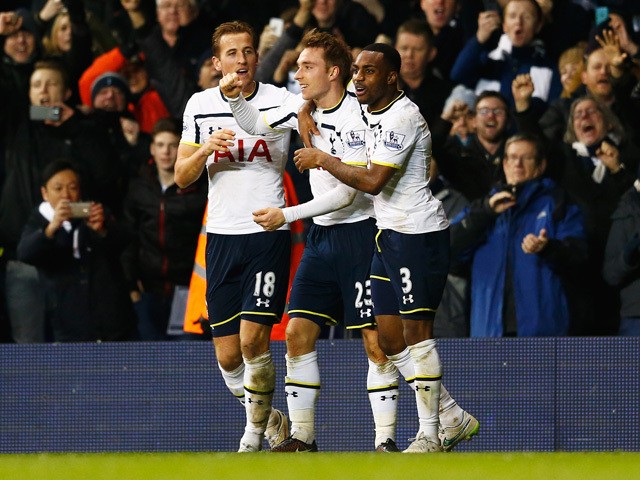Come May, it will be fifty-six years and counting, since Tottenham Hotspur were crowned champions. Match of the Day wasn’t even conceived at that point and when it was, the highlights programme was first broadcast in black and white. The United Kingdom didn’t introduce colour television programmes until 1967.
Spurs really haven’t won the title since the world was in black and white.
The Premier League was still thirty years from being formed and foreign ownership of English football clubs wasn’t going to happen. These were the fiefdoms of the local industrialist, the butcher, the baker and the candlestick maker. Manchester United’s scion Louis Edwards genuinely was a butcher and so was Bob Lord, Burnley’s owner at the time, lest you think I was being flippant.
The question is why Spurs failed to build on their success of 1960/61, particularly as they became the first club in the twentieth century to complete the league and cup double. The following year, they almost repeated the feat – which would have been an incredible achievement. Instead they settled on third in League Division One and winning the FA Cup.
If clubs are ascribed decades as their ‘Golden Age’, Tottenham’s was the sixties. It was during this decade that they officially became a London club, having previously been resident in Middlesex. Not a new ground, simply a restructuring of local boundaries by the Labour government of the time.
Spurs weren’t affected on the pitch. Their lowest finish in the decade came as it ended in 1969/70; they followed that eleventh place with third and seemed to be moving back to the top of the table, even if they suffered the ignominy of seeing Arsenal win the title at White Hart Lane. Their bitter rivals would rub salt into the wounds a week later when they won the FA Cup and emulated Tottenham’s double.
But the rest of the 1970s went from bad to worse, culminating in a relegation to the then-Second Division. Despite a swift return, they only managed one genuine title challenge before the formation of the Premier League. That, in 1984/85 ended in April when Arsenal won 2 – 0 at White Hart Lane.
Since then – up until last season – they haven’t been in the final shake-up when the title has been decided. Given the club was one of the ‘movers and shakers’ in the formation of the Premier League, it’s a staggeringly poor record. Arsenal’s glory in that time has been harder than normal to bear. And their north London rivals have been a continuous thorn in their side since Arsene Wenger’s arrival. It’s been 21 years since they last finished above their neighbours, a baffling record when you consider the number of occasions they have threatened to take the Gunners place in the top four.
There’s a sense of incredulity that the record remains intact, with Arsenal stealing second place as Spurs were humiliated on Tyneside as already-relegated Newcastle United thrashed them 5 – 1.
The question is why should this season be any different? Speaking after the fortunate 2 – 2 draw at the Etihad, Hugo Lloris argued that the current squad was mentally stronger than their predecessors and the point against Manchester City proved it.
It’s a fair observation but given their record over the past fifty years, a hollow one. The Spurs faithful has witnessed some outstanding teams during that time but typically, they have saved their best performances for the one-off occasion of cup-ties. Providing the consistency required to win the title has almost inexplicably been missing.
Crystal Palace were labelled the ‘Dream Team’ in the early 1980s but Tottenham had a squad whose talent individually, was comparable with Liverpool and Nottingham Forest, the all-conquering times of the era. Yet, they didn’t win the honours – two FA Cups is hardly recompense for the likes of Hoddle, Ardiles, Archibald and Perryman.
Tottenham’s problem has always been moulding the individuals into a team. Bill Nicholson’s greatest talent teambuilding but since then, they haven’t been able to find a combination which exuded confidence and consistency.
A procession of stars has turned out on the White Hart Lane turf, all of them flattering to deceive. There’s some in the air around that part of north London; Arsenal, their closest rivals, have enjoyed success beyond Tottenham’s dreams, before and during Arsene Wenger’s reign.
Is it something in the culture of the club, a lack of self-belief which is woven into the fabric of the training ground and dressing room. If that seems fanciful, what other explanation is there for the years of failure: collapsing title challenges, overtaken by Arsenal despite huge points advantages and missing out on the Champions League. By any measure, they are habitual.
The question is whether, as Lloris claimed, Spurs are stronger this season. Certainly, Victor Wanyama in the centre of midfield has added strength which wasn’t always apparent last season.
After their wobble, which followed the end of their unbeaten run, Spurs recovered well. They claim to be the only genuine contenders to Chelsea’s title charge; they need others to disprove them to have a chance. Despite beating the Blues on 4th January, they remain nine points behind Antonio Conte’s men.
Unsurprisingly, Arsenal sit second, with one point more than Spurs.
After pushing Leicester, this season is turning into a disappointment. It shouldn’t be a familiar feeling for the Shelf but it is. And disconcertingly, Mauricio Pochettino is showing no signs of breaking that pattern.
It isn’t through lack of money, there is something more insidious at play. Unless the Argentine can break that cycle, Spurs world remains tinged with sepia tones.

